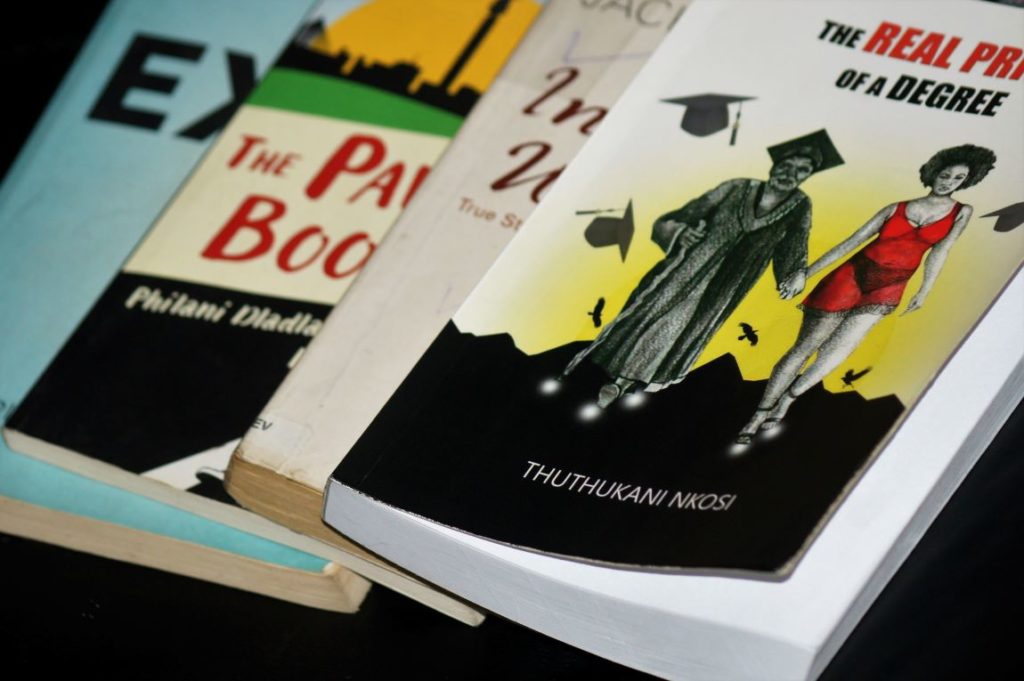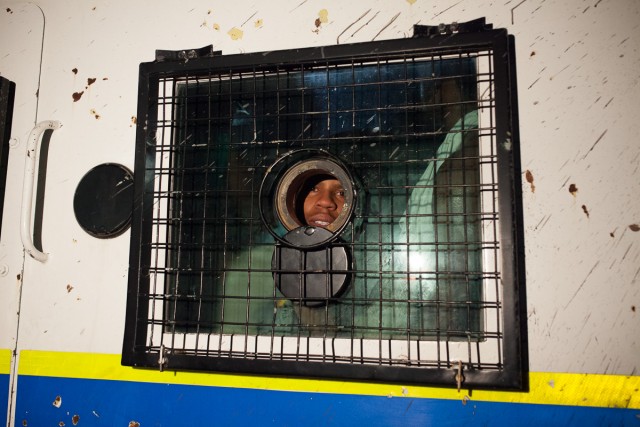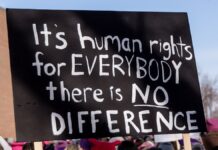BOOK REVIEW
Thuthukani Nkosi, a master’s degree student at the University of KwaZulu-Natal has finally published his book The Real Price of a Degree, which unpacks in fictionalised form the injustices and atrocities faced by students at one of the academic institutions in the province.
The Real Price of a Degree narrates an all-too-common story of financial exclusion in higher learning institutions and all that this discriminatory practices entails for students. The author highlights the struggle of a poor student who is hungry for education, and because of the system that shuts them out, they resort to desperate measures as alternatives.
As a reader and someone who has been at a university, and has had to endure the long queues, and even camp the whole night just to make it into the financial aid offices, this story explores the elephant in the room most often ignored by the elites. The book among many things, highlights the huge gap between poor students and those who can afford education.
Financial exclusion is a popular topic across all higher learning institutions in the country, and this makes the story of this particular group mentioned in the book very relatable.
Back in the day, the question “do you have NSFAS and residence” was very common because it was always the determinant of one’s social standing. It was a general and innocent question but for a student who comes from the peripherals, it was a life-changing question. Although one would have been accepted by the university, chances were they couldn’t get into the system because of funding, or lack thereof rather.
During my time as a first year student, a number of students had to return home because they couldn’t secure funding. Poor and academically deserving students, while a number of the elites could get into the system.
In the book, the author does justice in narration of how the whole exclusion system works, by providing a clear background of the protagonist student’s life at the university, from the time she arrived all the way from Northern KwaZulu-Natal to the day she first spent a night in a cell in Westville prison.

The author also highlights how the elites get into the system at the expense of the poor, because in most cases,connection at a university is everything.
The way he frames the whole protest incident reminded me of how students, many who were not even part of these protests would find themselves at the receiving end of brutality from private security personnel and police.
When protests erupted on campus back in the day, innocent first year students who mostly didn’t even know where to find basic utilities such as cafeterias and student representative council house were, would normally be caught between the crossfire and find themselves in a prison cell, all because they happened to be at the wrong place, at the wrong time.
Reports of students turning to sex work to survive have emerged.
This sparked alarm, with many people criticizing students for being driven by materialism. However, in this book, the author reveals the ordeal and the extent to which many students have to go in order to secure their degrees. The exclusion and mistreatment from the management, according to the author, always drive these female students to seek for alternatives. Even if it means they find themselves in life threatening situations.
The story reflects on how the group of five students, both first year and continuing were coming from disadvantaged backgrounds; and how their vulnerability and desperation got them exploited in many ways.
The experiences of these students vary but they all share something in common, the fight they have put up to be at the university. One had gone through a gang rape and once had to be a drug mule. The author then tells the story of how she escaped both death and jail, as she had fallen sick in Saudi Arabia while smuggling drugs so that she could earn money for registration.
The author also delves into the crime that is the symptom of persistent corruption within the police services. According to the author, the group couldn’t report to the police because they knew all the police officers and high ranking officials who were involved in the drug and sex trade syndicates.
All their stories are horrific and traumatising, but what’s befitting the most is the fact that after all they went through, some of them never got to obtain their degrees; and ended up in a forced prostitution due to being indebted to drug lords.
“The whole squad finished their degrees. I’m not sure if it was worth it but nothing has come of it a year later. On graduation day, their degrees were withheld because they are still indebted despite the announcement of free education,” narrates the character.
The story of these students break one’s heart, especially someone who has been through the university processes.
“I got NSFAS in my final year and I now stay in Res. Students see me every day leaving with skimpy clothes climbing onto an Uber going to a hotel to service men and they judge me. Finally our debt was paid off,” reads the book.
After all the struggle and traumatic life experiences, the group had paid their dues to the drug lords but say their lives were never to be the same.
“We got our freedom but we will never be the same again,” the student says.
Because of recurrent financial exclusions across all institutions in the country, many graduates are sitting at home unemployed because they are not in possession of their certificates. Some are drop outs with hefty outstanding fees owed to the institutions. Although the government announced free education back in 2016, the issue of financial exclusion persists in universities.
Featured image by Ashraf Hendricks









